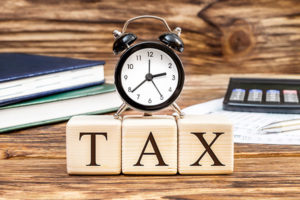Could ‘simpler’ Capital Gains Tax cost you more?
 Capital Gains Tax – CGT – is the tax you pay when you sell or dispose of something that’s increased in value.
Capital Gains Tax – CGT – is the tax you pay when you sell or dispose of something that’s increased in value.
It’s the profit you make that’s taxed, not the amount of money you receive. So if you buy an asset for £5000 and sell it on for £25,000 you make a gain of £20,000. If you pay basic rate income tax, you will be liable for CGT at 10%. Higher rate taxpayers are charged CGT at 20%.
Fortunately, you only have to pay CGT on your overall gains above your tax-free allowance. This is currently £11,700, or £5,850 for trusts – £11,700 if the beneficiary is vulnerable.
CGT mainly affects investors when they sell an asset. The government has not attempted to charge it on ordinary homes, rightly fearing an angry response from aggrieved homeowners – but it is charged on second homes, and on property portfolios.
Now, the way it is charged may be changing.
What happens now
Currently, if you sell a property and CGT is owed, you will usually not need to pay until 31 January following the end of the tax year. So, if you sold a residential property that was not your main residence on 1st May 2018, the tax would not be due until 31 January 2020.
The CGT sum could remain in your possession and be earning you money for around 21 months.
What the government is doing
In the 2015 Autumn Statement, it was announced that HMRC was looking at ways to make paying CGT “simpler and quicker” for taxpayers. The government suggested that it would introduce CGT payment on gains from selling residential property within 30 days of the disposal being completed.
Even if you were ultimately able to set the capital gains against subsequent losses, you will still need to pay a sizable sum ‘on account’ over to the taxman inside a month.
What does this mean?
After a consultation earlier this year, it was finally announced that the new payment would be delayed until April 2020. UK residents who sell a residential property on or after 6 April 2020 will need to deliver a return to HMRC and pay any CGT due within 30 days of completion.
A cynic might suggest that this has very little to do with making things simpler for taxpayers, and a great deal to with increasing revenues for HMRC. It sets a precedent which would extend to many other tax types. Speeding up payment of tax receipts is an objective of the delayed ‘making tax digital’ programme, at one time a central pillar of government policy.
Complications look inevitable. The calculation of CGT on the sale of a residential property can be far from straightforward. If a property has been a main residence for part of the period of ownership and then let out, if only part of a property has let out, or where part of a large garden has been sold off are all situations where CGT can become complicated.
Things will be more complicated still if you are ultimately entitled to claim the payment back, as a result of your tax allowance, or losses you might make elsewhere.
It looks as though ‘simpler’ CGT could prove to be anything but. Getting professional help with your tax looks to be even more important. At Continuum, we will be pleased to help.
The value of investments can fall as well as rise and you may get back less than you invested.
Tax treatment varies according to individual circumstances and is subject to change.
Get in touch
If you would like to discuss further please call us on 0345 643 0770, email us at [email protected] or click on the ‘Contact Us’ link below. Thank you.
Sources:
yourmoney.com – All change for the Capital Gains Tax payment window? – 3rd August 2018
assets.publishing.service.gov.uk – Capital Gains Tax: Payment window for residential property gains – 6th July 2018



